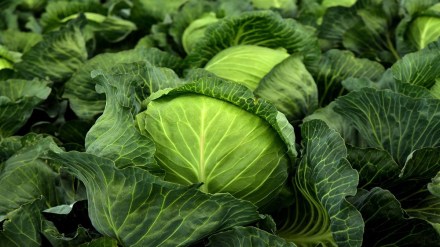As the winter chill settles in, the seasonal shift brings about a change in the availability and variety of vegetables. Embracing winter vegetables not only adds vibrancy to your plate but also ensures a diverse and nutrient-rich diet.
Here are some must-have vegetables during the winter months that can elevate your culinary experience and boost your health.
- Root Vegetables: Winter is synonymous with root vegetables like carrots, turnips, parsnips, and beets. These hearty vegetables thrive in cooler temperatures and are packed with essential nutrients. Rich in fiber, vitamins, and antioxidants, they not only contribute to a robust immune system but also provide a natural sweetness to winter dishes.
- Cruciferous Vegetables: Cruciferous vegetables such as broccoli, cauliflower, and Brussels sprouts are at their peak during winter. These vegetables are known for their cancer-fighting properties and are excellent sources of vitamin C, vitamin K, and folate. Roasting or sautéing them with a touch of olive oil and your favorite seasonings can turn them into delectable sides or main dishes.
- Leafy Greens: While some vegetables thrive in the cold, leafy greens like kale, spinach, and Swiss chard also flourish during winter. Packed with iron, calcium, and vitamins A and C, these greens are essential for maintaining bone health and supporting the immune system. Incorporate them into soups, stews, or hearty salads for a nutritious boost.
- Winter Squash: Varieties of winter squash, such as butternut, acorn, and spaghetti squash, are versatile and can be used in a myriad of dishes. These vegetables are rich in vitamins, including A and C, and provide a hearty and comforting addition to winter meals. Roast them, mash them, or turn them into warming soups to enjoy their sweet and nutty flavors.
- Cabbage: Cabbage is a budget-friendly and nutritious winter vegetable. Whether red or green, cabbage is an excellent source of fiber, vitamin C, and vitamin K. It can be used in salads, coleslaws, or sautéed as a side dish. Additionally, fermented cabbage, such as sauerkraut, is a probiotic-rich food that can benefit gut health.
Incorporating these must-have winter vegetables into your meals not only adds a burst of flavors and textures but also ensures that you’re getting a diverse array of nutrients to support your overall well-being. Experiment with different cooking methods and recipes to make the most of the seasonal produce and turn your winter meals into a celebration of freshness and health.
What are the benefits?
- Rich in Nutrients: Winter vegetables, including root vegetables, cruciferous greens, and winter squashes, are rich in essential nutrients such as vitamins (like A, C, and K), minerals (such as potassium and folate), and fiber. These nutrients support various bodily functions, including immune health, bone strength, and digestion.
- Antioxidant Properties: Many winter vegetables are packed with antioxidants, which help combat oxidative stress in the body. Antioxidants play a crucial role in reducing inflammation and protecting cells from damage caused by free radicals.
- Support Immune Function: The vitamin C content in winter vegetables, such as Brussels sprouts and kale, can bolster the immune system. A robust immune system is especially important during the winter months when the risk of colds and flu is higher.
- Heart Health: The fiber and potassium found in winter vegetables contribute to heart health by promoting healthy blood pressure levels and supporting cardiovascular function.
- Weight Management: Winter vegetables are often low in calories and high in fiber, making them an excellent choice for those looking to manage their weight. The fiber content promotes a feeling of fullness, reducing the likelihood of overeating.
What are Some Potential Side Effects?
- Gas and Bloating: Cruciferous vegetables like broccoli, Brussels sprouts, and cabbage can cause gas and bloating in some individuals. Cooking these vegetables or introducing them gradually into your diet may help reduce these effects.
- Allergies: While allergies to winter vegetables are rare, some individuals may be allergic to certain types, such as butternut squash or specific greens. If you experience symptoms like itching, swelling, or difficulty breathing, seek medical attention.
- Oxalates in Leafy Greens: Leafy greens like spinach and Swiss chard contain oxalates, which, when consumed in excess, may contribute to kidney stone formation in susceptible individuals. Moderation is key, especially for those with a history of kidney issues.
- Carbohydrate Content: Some winter vegetables, particularly root vegetables, can be higher in carbohydrates. Individuals following low-carbohydrate diets or managing conditions like diabetes should be mindful of their intake and consider portion control.
- Interactions with Medications: Certain winter vegetables, such as kale and Brussels sprouts, contain vitamin K, which can interact with blood-thinning medications. If you’re on medication, it’s advisable to consult with your healthcare provider about your diet.
